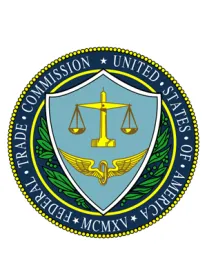In a dispositive decision during a bench trial, federal district court Judge Nora Fischer of the Western District of Pennsylvania found that the FTC failed to present any credible expert testimony to support its suit for false advertising, and entered judgment for Defendant Innovative Designs (“IDI”). FTC v. Innovative Designs, No. 16-1669 (W.D. Pa. Sept. 24, 2020).
The FTC sued IDI under Section 5(a) of the FTC Act, alleging that IDI overstated the insulation power (or “R-values”) of its Insultex house wrap products and falsely claimed that using Insultex saves energy. The “R-value” of an insulation product is the numeric measure of its ability to restrict heat flow and, as a result, reduce energy costs. IDI contended that test results from an accredited laboratory supported its claimed R-values.
Immediately following the FTC’s case-in-chief, IDI moved to exclude or strike the testimony of the FTC’s expert, Dr. David Yarbrough, an expert in building insulation. The Court granted IDI’s motion, finding that Dr. Yarbrough’s testimony was unreliable, failed to fit the case, and was not credible. IDI then moved for a judgment on partial findings.
The FTC’s only remaining expert for its case-in-chief was Dr. Anastassios Mavrokefalos, whose testimony was introduced via deposition designations. Dr. Mavrokefalos had previously served as IDI’s expert, and had initially taken the position that the R-values IDI advertised were correct. However, he subsequently changed his position, testifying that he no longer believed this to be true – he now believed IDI overrepresented its R-values.
The court found Dr. Mavrokefalos’s testimony inadequate because, in reaching his conclusion, he relied on non-standard tests. Further, the court found Dr. Mavrokefalos’s testing unreliable because he had almost no experience with running the tests, did not explain the known errors associated with each test and how they impacted his results, and admitted he wasn’t overly concerned with precision. He also did not conduct all his testing on the advertised product itself. Moreover, Dr. Mavrokefalos’s testimony did not discuss whether his qualifications and experience made him proficient to perform each technique. Lastly, the testimony of Dr. Mavrokefalos on which the FTC relied was the exact opposite of what he previously testified; in light of this prior testimony, the court found the FTC’s proffered testimony not credible.
Without any affirmative expert testimony to support the FTC’s position, the Court found “no reliable or credible evidence in the record demonstrating that IDI’s claims are false,” and granted judgment in favor of IDI.
This decision demonstrates the importance of properly vetting one’s expert witnesses; especially where, as here, the advertising claims at issue are highly technical, and expert testimony may make or break the case. Watch this space for further developments.





 />i
/>i

